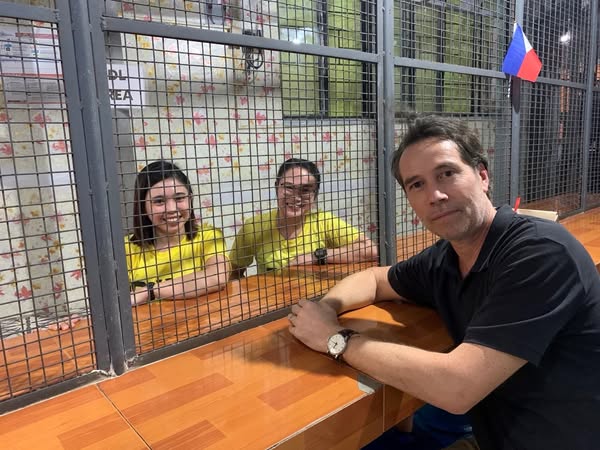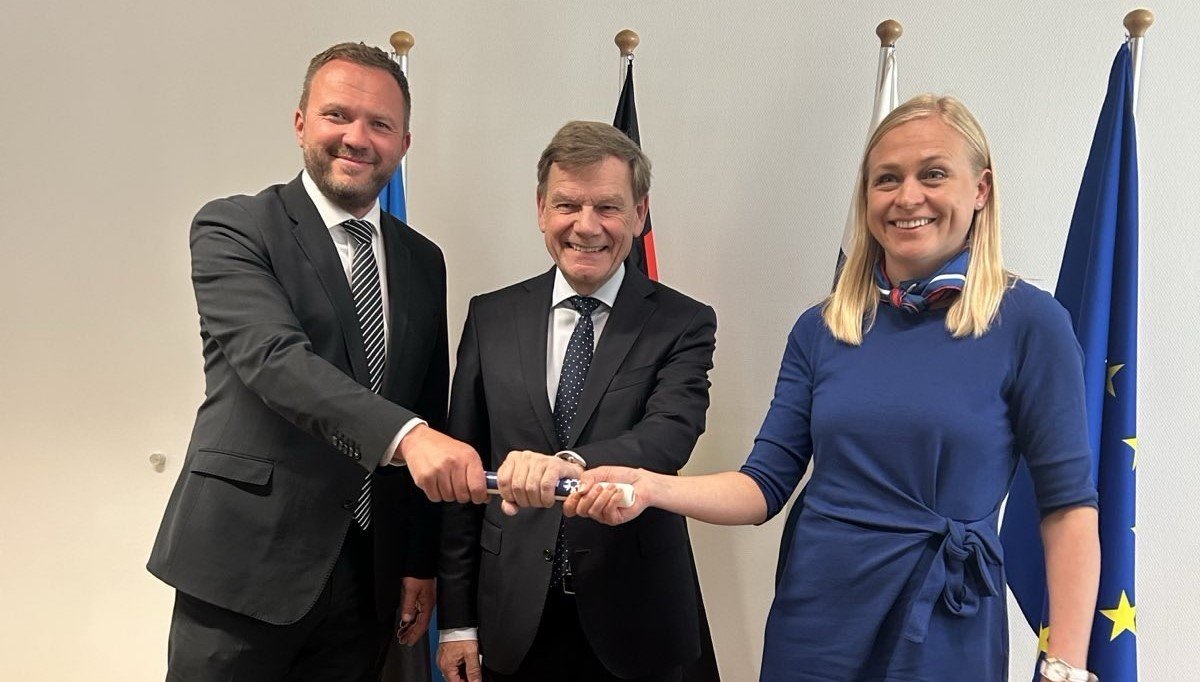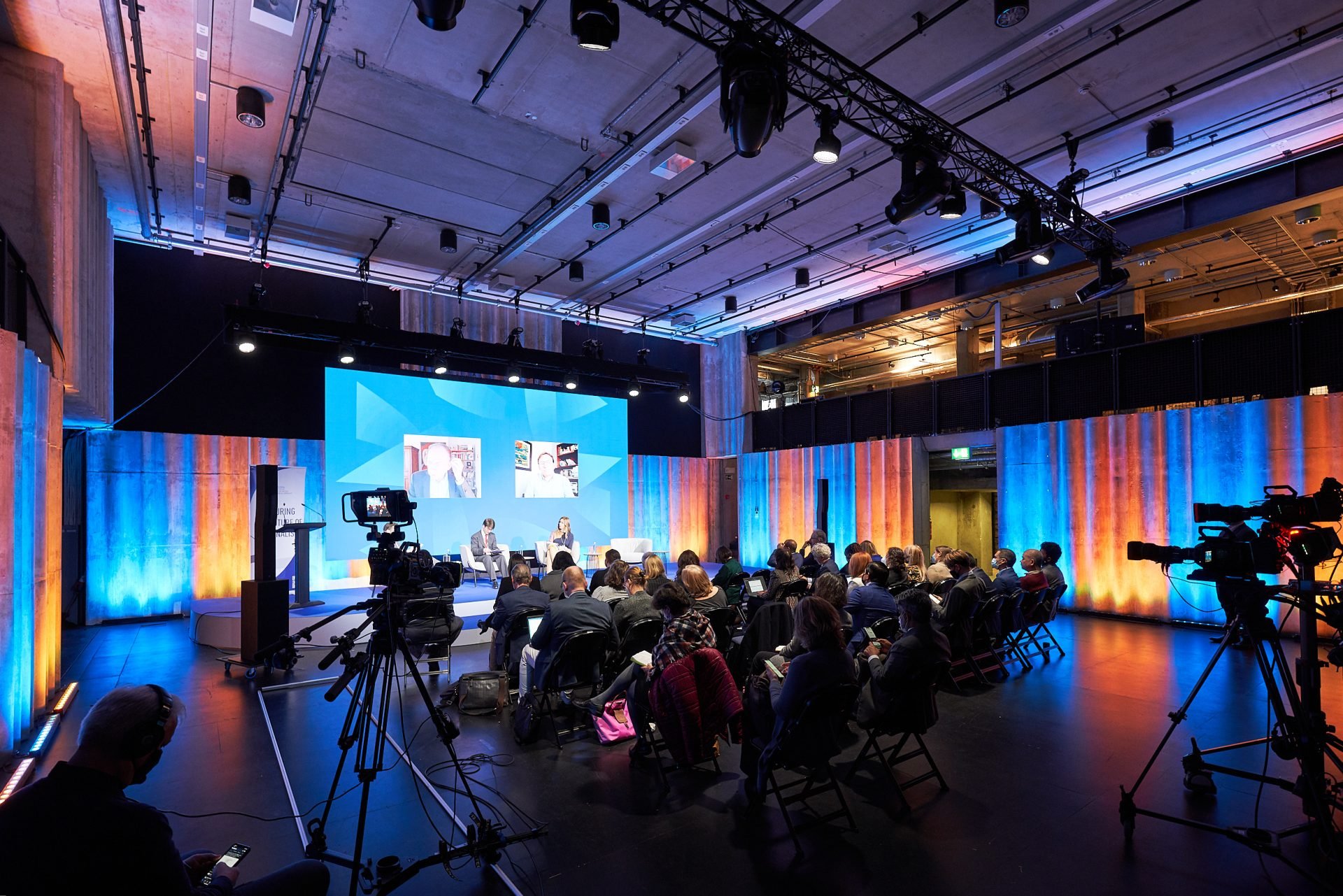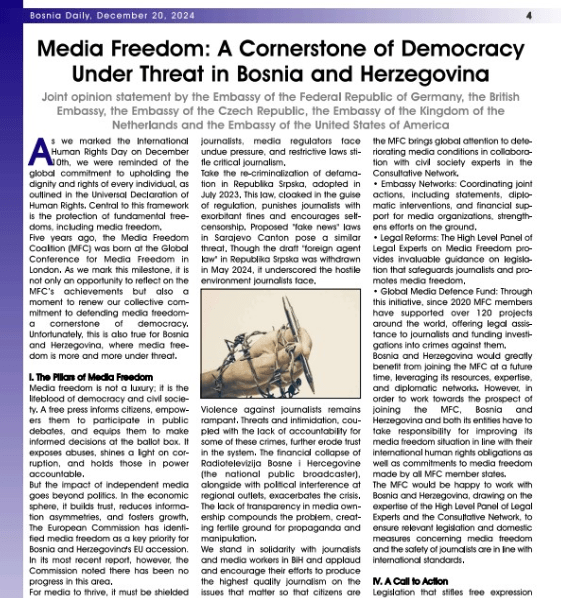
The MFC has produced over 40 joint government statements since it was founded in 2019, and testimony from journalists demonstrates that these statements still matter.
This has recently been the case in Georgia, where journalists have faced threats to their safety while covering pro-European protests.
On December 20th, the co-chairs of the MFC, Germany and Estonia, released a statement, calling on Georgian authorities to put an end to the excessive use of force against journalists covering the protests, and to fully respect their commitments to media freedom and the safety of journalists, as well as the right of peaceful assembly. 27 member countries aligned themselves with this statement, sharing it across social media.
The statement gained widespread attention and was picked up by a large number of news/media outlets including Civil Georgia, Media Voice Georgia, and TV25, amplifying its reach and impact.
Then, on January 30th 2025, 14 embassies of MFC member countries in Georgia released a statement about the welfare of journalist Mzia Amaglobeli. This statement was subsequently picked up by the nightly news in Georgia, Rustavi2.
A Georgian journalist emphasized the importance of such international solidarity: “Any statement from the West in support of imprisoned journalist Mzia Amaglobeli is vital…such statements are expressions of solidarity. They serve as a reminder that we are not alone in this struggle. Consistent acts of solidarity are necessary to ensure the international community does not overlook the ongoing repressions in Georgia.”
Both of these statements were produced in ways that maximised the speed of response – the December statement was drafted only by the MFC co-chairs, with other countries aligning, while the one in January was produced at embassy level. Improving the speed of statement production has been a key piece of feedback from the MFC’s earlier years.
Teona Sekhniashvili, Europe Network and Advocacy Officer at the International Press Institute, commented that “the Media Freedom Coalition’s advocacy and support, including but not limited to public statements and participation in trial monitoring, send a powerful message of international solidarity. This support is vital – it makes a big difference. It reassures independent journalists and civil society in the country that they are not alone, that the world is watching, and that their fight for press freedom is one worth pursuing.”
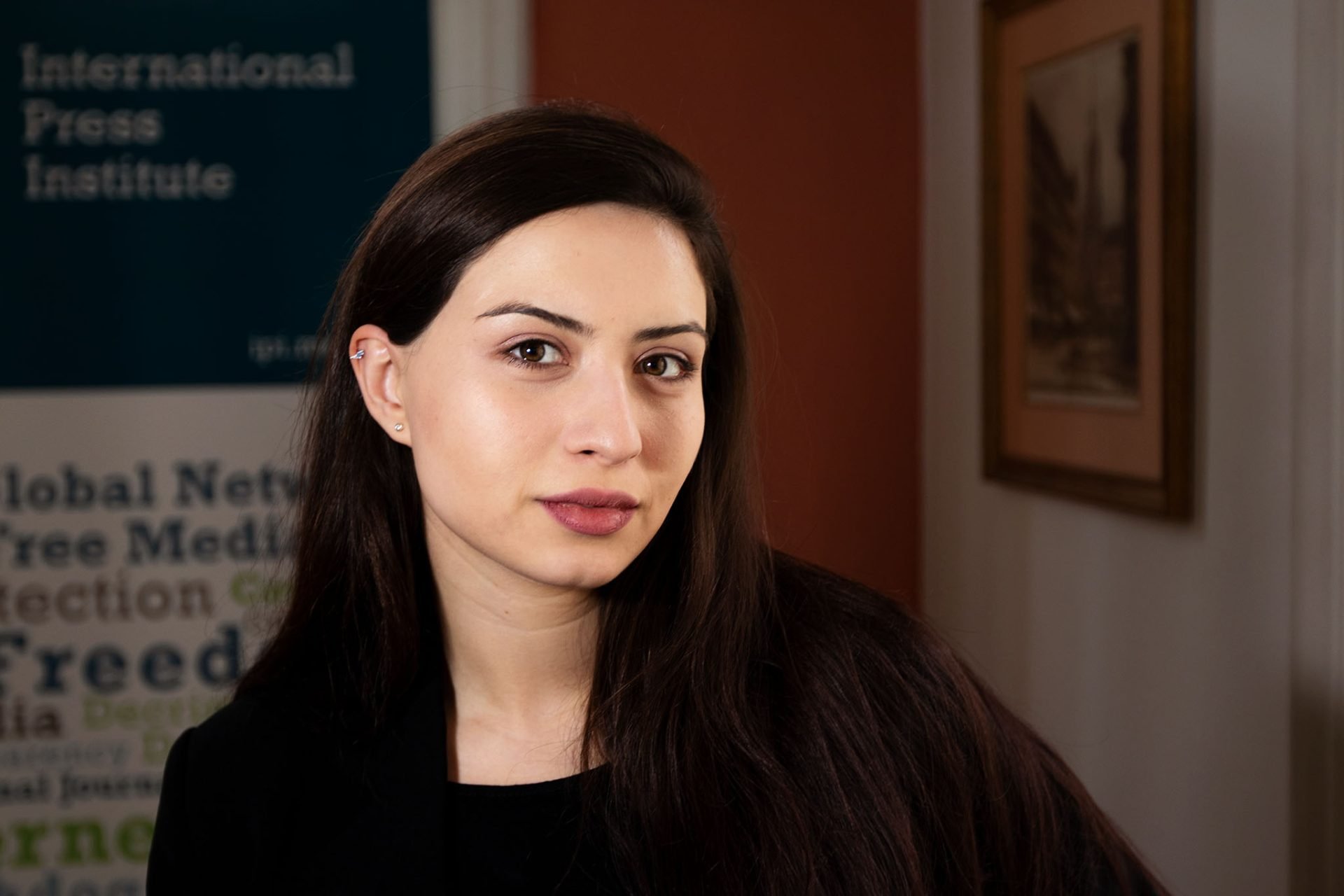
In November 2024, 28 countries signed an MFC statement addressing the ongoing situation of Jose Rubén Zamora, a prominent Guatemalan journalist and founder of El Periódico. With a longstanding career in investigative reporting, Zamora has earned numerous media freedom awards. However, in June 2023, he was sentenced to six years in prison on charges of money laundering. Two of the three charges have since been dismissed and Zamora was transferred to house arrest in October 2024.
The MFC statement expressed deep concern over the attacks on press freedom in Guatemala, particularly regarding Zamora’s case. The statement called on Guatemalan authorities, including the judiciary and prosecutors, to uphold international human rights standards, ensure a fair legal process, and release Zamora from arbitrary detention.
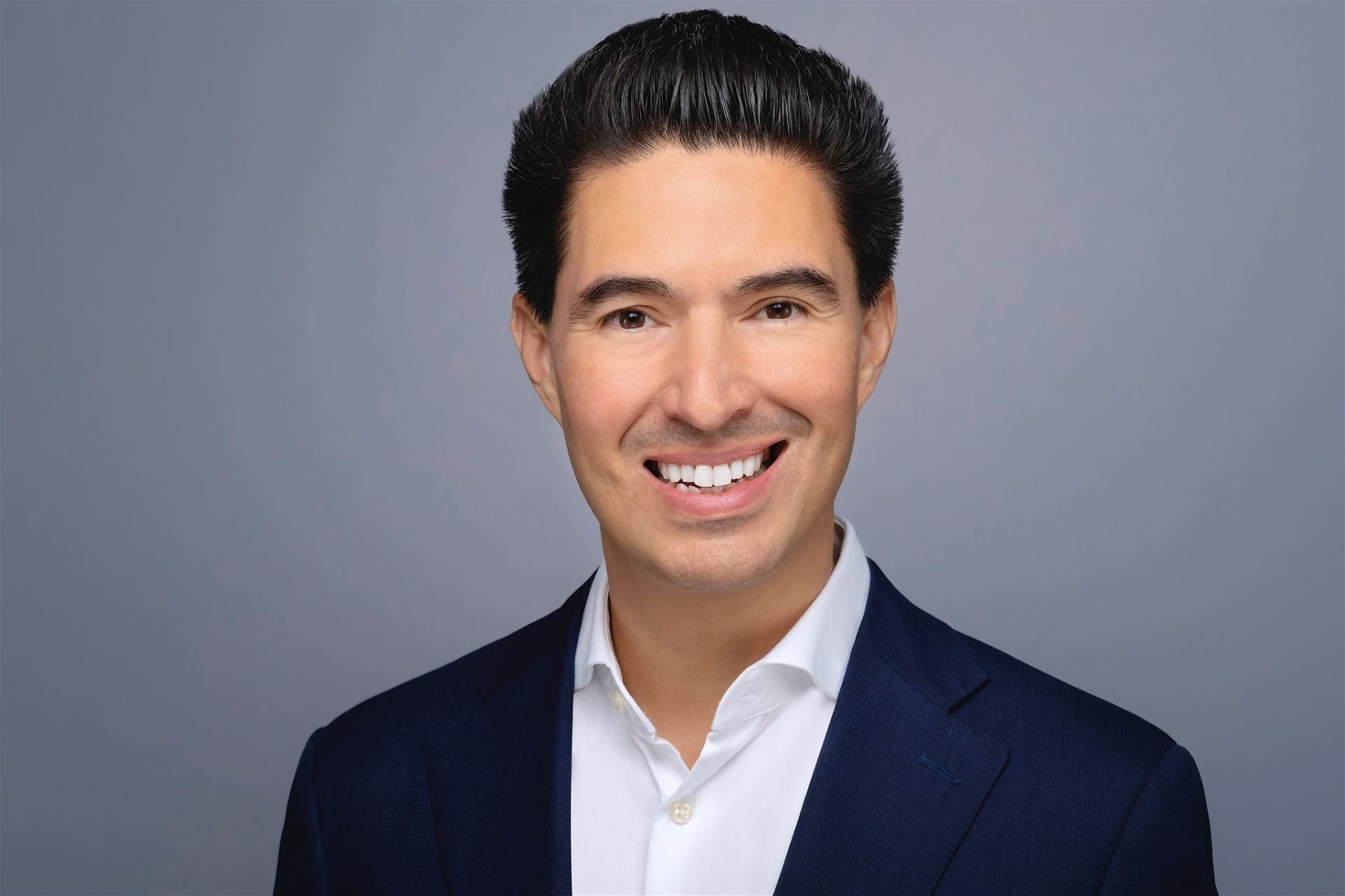
Following the statement, José Carlos Zamora, the son of Zamora, said: “We are deeply grateful to the members of the Media Freedom Coalition for standing in solidarity with my father, José Rubén Zamora, and for their unwavering commitment to defending press freedom. Your support sends a powerful message to corrupt actors: the world is watching, and free and democratic governments will not tolerate attacks on press freedom.“
More recently, at a hearing on January 13th 2025, a return to prison was looking imminent. However, the Supreme Court of Justice accepted Zamora’s request for constitutional protection, meaning that he remained under house arrest.
Another example of MFC statements having an impact was the MFC’s joint statement on Stand News in Hong Kong, published on September 9th, 2024. This statement, singed by 25 members of the MFC, resulted in significant national and regional media coverage, with at least 26 news stories and opinion pieces picking up on the statement. Notable outlets like the Hong Kong Free Press, Radio Free Asia, and the South China Morning Post covered it, and the statement also sparked an official response from the government of the Hong Kong Special Administrative Region.
Meanwhile in December 2024, in line with International Human Rights Day, five MFC member embassies issued a statement on the media freedom situation in Bosnia and Herzegovina. It read “Bosnia and Herzegovina would greatly benefit from joining the MFC at a future time, leveraging its resources, expertise, and diplomatic networks. However, in order to work towards the prospect of joining the MFC, Bosnia and Herzegovina and both its entities have to take responsibility for improving its media freedom situation in line with their international human rights obligations as well as commitments to media freedom made by all MFC member states.”
The statement, published in Bosnia Daily (pictured), also appeared in several other national news outlets, such as Stav.ba, N1, and Baj Media.

The MFC continues to learn about how to best use joint statements, and in 2024 it published a joint learning paper with the Freedom Online Coalition, focusing on the lessons learned on producing these statements. While the MFC continues to refine its approach, such statements remain a vital activity of the Coalition, drawing attention not only to specific media freedom cases, but also to the broader challenges that media workers encounter in many countries and how such challenges should be addressed.
